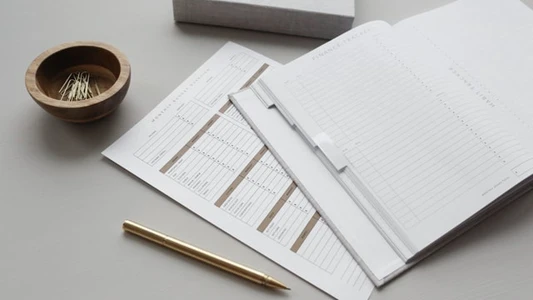What do lenders look for in bank statements?
Applying for a mortgage can be stressful, especially if you find yourself having no idea what makes a good or bad application. One of the most important aspects of a mortgage application is called an ‘affordability assessment’. This is where your lender will look at your bank statement to determine whether or not you are a low-risk borrower.
In this article, we’ll discuss what exactly lenders look for when reviewing your bank statements, how gambling or other credit platforms could impact your application, and how to improve your chances of getting a mortgage application.
Why do mortgage lenders need your bank statements?
Bank statements are the easiest way to determine how much money enters your bank account versus how much money leaves. Lenders will weigh up your incomings against your outgoings to evaluate whether the money you earn, be that from an annual salary, rental income, and such, will be able to cover the cost of your mortgage, on top of your current expenses.
What are lenders looking for?
There are two main things that lenders will be interested in when looking at your bank statements. These are that:
- You have a good source of income - this would be a permanent job, or a form of earning that you receive regularly, such as if you rent a property.
- You have no questionable expenditures or outgoings that present you as a risk - these could be gambling payments or even the use of online buying platforms such as Klarna that market themselves under the ‘Buy Now, Pay Later’ slogan. Your lender needs to be sure that you can follow through on your payments, so anything that shows you have bad spending habits, or potentially highlights a pattern where you buy without actually being able to afford said purchase, makes you less reliable in the eyes of the lender.
Can gambling or Buy Now, Pay Later services really affect my mortgage application?
Whilst the occasional bet placed, or payment deferred until later in the month, isn’t a massive cause for concern, betting large amounts of money, or always being late to pay off outstanding orders, could damage your chances of getting a mortgage. Lenders want to be sure that you’re responsible with your money, so that when they offer you a mortgage, they’re doing so with the belief that you can make your monthly repayments. Having outstanding debt, does not show lenders that you know how to be money-wise.
What can I do to improve my mortgage application?
Now that we’ve discussed the kind of spending habits that could put your mortgage application at risk, here are some tips that could help lenders see you as a low-risk borrower.
- Pay off any current debt - this will show lenders that you can handle your money responsibly.
- Start, or continue using, a savings account - by paying money regularly into a savings account, not only will it help you save for a deposit, but it will also show lenders that you know how be reasonable with what you earn, by not spending it all in one go.
- Try not to use your overdraft- being too overdrawn, or constantly depending on your overdraft, will make lenders think that you don’t use your money wisely. Some lenders won’t even consider mortgage applications if you’ve used your overdraft in the las three months. So tighten your belt and hold off on the overdraft to show lenders that you can handle your money well.
- Get all your paperwork sorted beforehand- get together all your recent bank statements and payslips so that when your lender asks for them, everything is ready to handover. Doing this should make for a more speedy process, with less back and forth.
If you’re still uncertain about what exactly goes into a mortgage application, and the kind of things that lenders look for when assessing your bank statement, get in touch with our team who can offer you help with whatever you need.
Important information
Your home may be repossessed if you do not keep up repayments on your mortgage.
There may be a fee for mortgage advice. The actual amount you pay will depend upon your circumstances. The fee is up to 1%, but a typical fee is £99.

